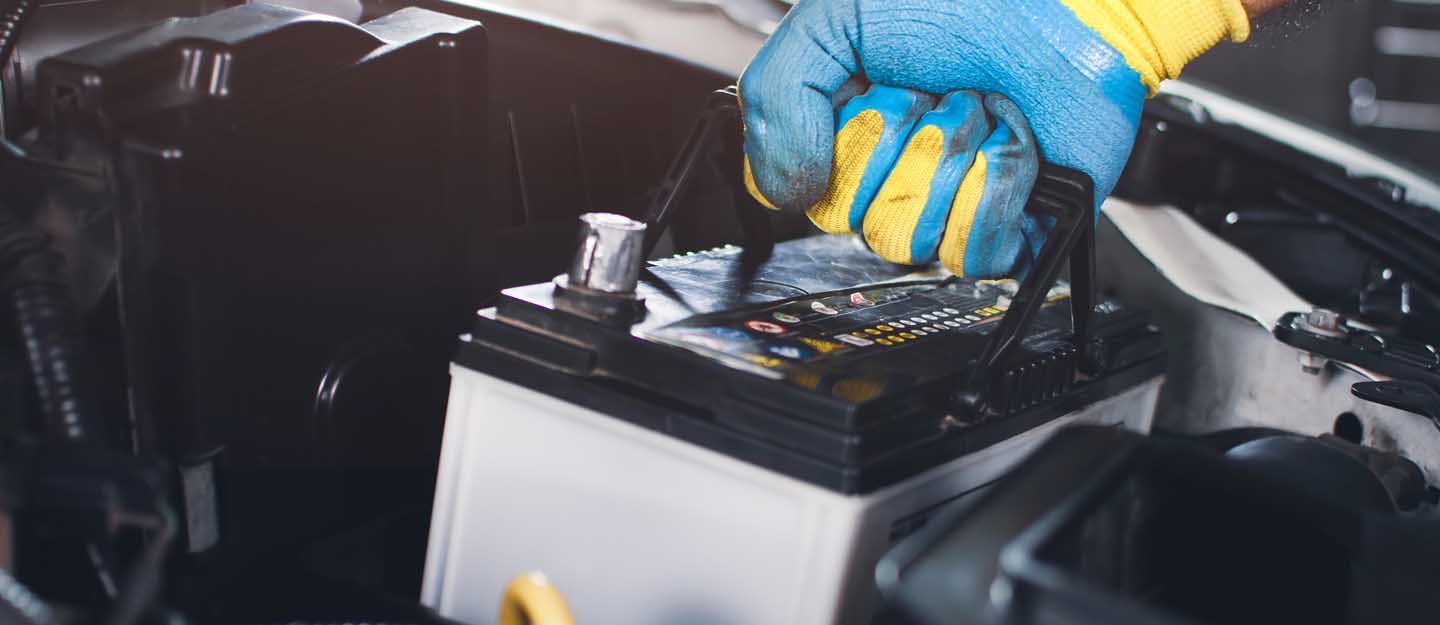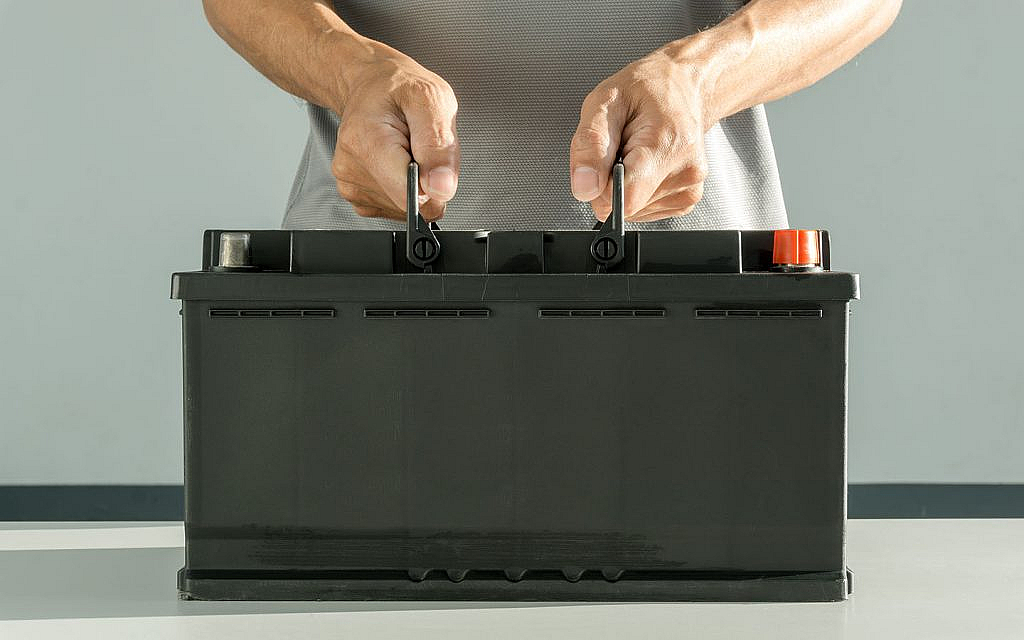Practical Tips to Store Your Car Battery When Not in Use

- Location and Temperature
- Protect from Moisture
- Proper Charging
- Monitor Charge
- Thorough Cleaning
- FAQs
When planning to park a vehicle for extended periods, it’s essential to pay attention to the car battery. In such circumstances, one must store the car battery properly to prevent depletion. Incorrect storage practices add to the battery’s degradation, affecting the car’s overall performance.
If you find yourself in such a situation, here are some useful ways to safely store a car battery when not in use. These will help preserve the car battery and prevent any issues arising from a discharge or deteriorated battery.
How to Protect a Car Battery When Not in Use
Proper battery storage is a crucial step for long-term car parking. First, disconnect the car battery properly. For regions with warm climates like the UAE, store the car battery in a cool place to decelerate its discharge rate.
Moving forward, here’s how to safely store a car battery when not in use. These dos and don’ts are an important part of the car battery maintenance checklist during long periods of inactivity.
Choose an Appropriate Location and Temperature
Select a cool, ventilated, sealed and dry place to store your car battery. Heat damages the battery by speeding up corrosion and sulphation which decreases its lifespan. To prevent it, go for a shady and low-temperature storage place.
You must also cover the battery from the top and bottom sides to fend off dust particles. As for optimal temperature for battery storage, it must be between 10 to 15 degrees Celsius. This will help prevent car battery drains from extreme temperatures.

Protect from Moisture and Humidity
Moisture and humidity slowly deteriorate a car’s battery and its ability to recharge. Humidity spikes the corrosion of a car battery and its terminals and disturbs the chemicals inside it. Keeping the battery clean and dry helps avoid moisture buildup.
To prevent moisture-related corrosion on a car battery during storage, ensure the storage environment is dry and well-ventilated. Consider using moisture-absorbing materials in the storage area to minimise humidity. Additionally, apply a thin layer of a corrosion inhibitor to the battery terminals to create a protective barrier against atmospheric elements.
Charge Properly Beforehand
To protect a car battery when it is not in use, you must charge it properly beforehand. Make sure that the battery is charged between 12.7 volts to 12.8 volts. If the charging falls below 12.4 volts, it may lead to sulphation, where sulphate crystals form on the battery plates, reducing its overall capacity.
Also, avoid battery overcharging. It can lead to electrolyte loss and potential damage. Once fully charged, disconnect the terminals to prevent parasitic battery drains during storage.

Keep Tabs on Battery Charge
Among different ways to safely store a car battery when not in use, keeping tabs on the battery charge is important. Periodically check the charging status of a car battery that is in storage, especially if it’s stored for an extended period.
Car batteries can self-discharge over time and various factors, such as the battery’s internal resistance, contribute to this discharge. Regular voltage checks, using a multi-metre or a battery tester ensure that the battery remains at an adequate charge level. To simplify the monitoring process, consider using a battery maintainer or go for trickle charging.
Clean the Car Battery Properly
To properly store a vehicle battery, first clean it properly to maintain its performance and lifespan. Use a mixture of baking soda and water or a commercial battery cleaner to clean corroded car battery terminals and cable ends. A wire brush or an old toothbrush works well for this task. Ensure that the entire surface is clean and free from any debris.
After cleaning, thoroughly rinse the terminals and cable ends to remove any remaining cleaning solution. Once dry, apply a thin layer of a specialised battery terminal protectant to the terminals. This protective coating helps prevent future corrosion.

FAQs
How do you store a car battery when not in use?
Tips to safely store a car battery when not in use include selecting a cool and dry place, optimal battery charging and thorough cleaning to prevent corrosion.
Do unused batteries degrade over time?
Yes, unused batteries can degrade over time due to a natural process called self-discharge, where they gradually lose their charge even when not in use.
What happens if a car battery sits too long?
If a car battery sits too long without use, it can undergo self-discharge. This may result in a reduced battery capacity and restarting the car after months can become a hassle.
For how long can a car battery be stored?
Both used and new car batteries can be stored for several months to a year if kept in a cool, dry place with a full charge.
These were some of the effective ways to safely store a car battery when not in use. These tips assure a healthy battery lifespan and will preserve its performance. However, if you plan to change your vehicle due to concurring battery issues, here are used cars for sale in the UAE that have a myriad of listings. Besides, if you are an EV owner, here are electric car battery maintenance tips that you can go through.
For more on different car issues and their solution, stay connected with dubizzle’s cars blog.